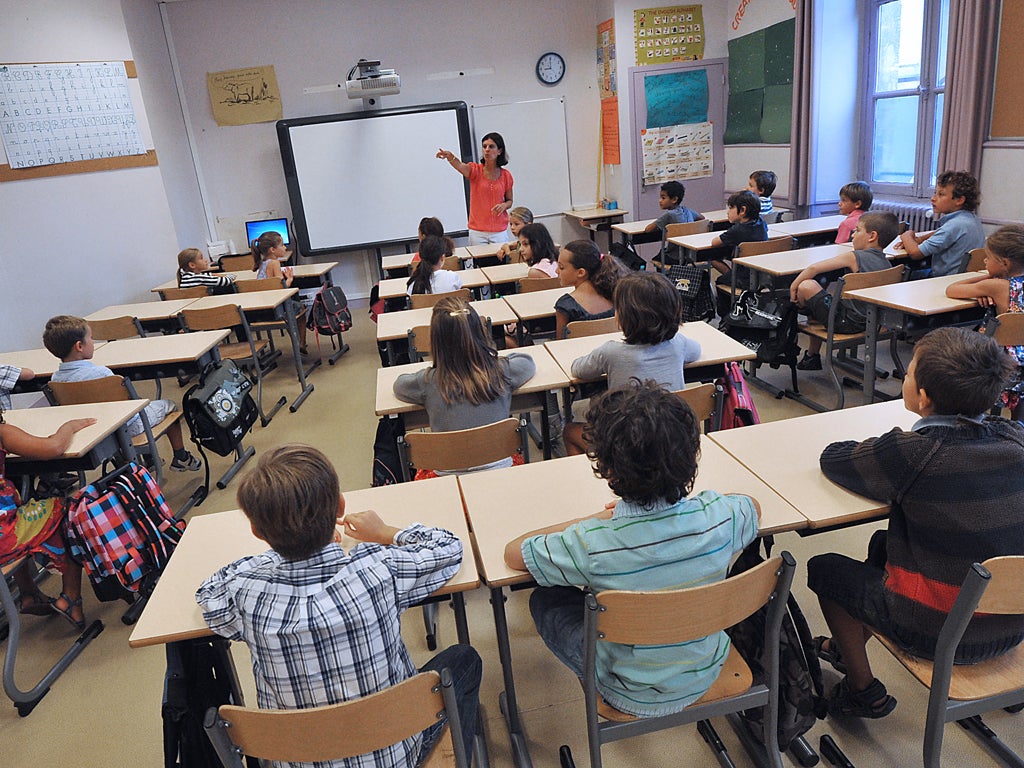Teach them about porn! How else will kids know if what they've seen or heard is right or wrong?
It’s naive of parents to assume that their children aren’t aware of internet pornography from an early age. Schools need to have the tools to address the topic

As a nation, we’re notoriously squeamish about sex, in particular about discussing it with our offspring.
Many parents would prefer that their children adopt the “born from my mother’s tummy button” approach, or assume that they were or dropped into their parent’s arms by a sympathetic stork for as long as possible, in order to protect their innocence, or other such nonsense.
As a result of this, for many children in the UK, sex education begins and ends in the classroom, so it’s worrying that a report by Ofsted has warned that a third of schools are failing to give children decent sex and relationship lessons. Does this mean that parents are now faced with the horror of having to have the “sex talk” with their brood themselves? Are we to give up on sex education in schools? Of course not.
The finding that primary schools put too much emphasis on friendships and relationships, rather than the physical and emotional changes of puberty, is worrying. This squeamish approach ignores the fact that, as the report states: “research shows that children as young as nine are increasingly accessing pornographic internet sites”.
It’s wholly naive of parents to assume that their children aren’t aware of internet pornography from an early age. I can remember young boys talking about how much they wanted to have sex with the women they had seen semi-naked in top shelf magazines belonging to older brothers when I was in my penultimate year of primary school. This has stuck in my head for years because of how confusing, weird and uncomfortable it made me feel: who were these women? Why were they so desirable? What did the boys want to do to them?
I didn’t have the mental tools to understand things like Page 3 and pornographic magazines when I was in single digits, despite being exposed to them vicariously through my classmates. As the teachers ignored the conversations they overheard (apart from one memorable occasion when our headmistress banned “three little letters called s, e and x” from being discussed) I was totally in the dark about the umpteen issues and questions finding out about the act of sex itself raised.
Of course, seeing a woman scantily clad is not the same as seeing hard-core porn online, so I can only imagine how confusing and upsetting watching porn is for the online generation. And yet, because they know that they’re not supposed to be watching it, the insatiable curiosity is there, and they will look.
No matter how Fort Knox-esque you believe your parental control settings to be, your children can find ways round them, or find friends whose parents haven’t managed to turn the setting on. Or even have classmates who have seen it on their older sibling’s computer and are willing to recount it in detail. Children need to understand what they’re seeing, in context. They need to know that what they see in porn is not necessarily normal.
The Ofsted report also found that in secondary schools, too much emphasis was put on the “mechanics” of reproduction. My own experience of sex education in my teens involved either biology lessons on reproduction or one memorable video that depicted a young couple disappearing into a room at a house party to do the deed. Rape or other forms of sexual abuse were not discussed, nor was porn, sexism, or any number of crucial issues that children and teenagers must be allowed to explore and question. As a result, I grew up calling girls sluts, assuming that rapists could only be a dodgy man down a dark alley, and that I needed to conform to the women that I saw online, who passively put up with whatever the men wanted from them. It took a long time to overcome the stupid prejudices and misunderstandings that arose from a lack of education on these issues.
Because teachers shut down debate and let the videos do the talking, vital questions went unanswered. School staff need to feel equipped and confident enough to talk about issues related to sex in depth, they need to know how to deal with questions, and children need to feel able to ask the questions in the first place. It’s also crucial that they feel able to reach out to their teacher rather than suffer in silence if they’re being abused, or even just unsure about what’s okay and what isn’t.
We need to be talking about porn, and why it’s so different from the sex that children will later have in real life. Children know what sex is in primary school, and it needs to go beyond a biology textbook and a ten minute video sandwiched in between ones about getting spots and your period. Because, if we’re not talking about porn, abusive relationships, the idealisation and sexualisation of the female form and other issues closely linked to sex with young children, they will seek the information in the place where they’ve been taught to research everything else: the internet - and good luck trying to police what they find there.
Join our commenting forum
Join thought-provoking conversations, follow other Independent readers and see their replies
Comments
Bookmark popover
Removed from bookmarks